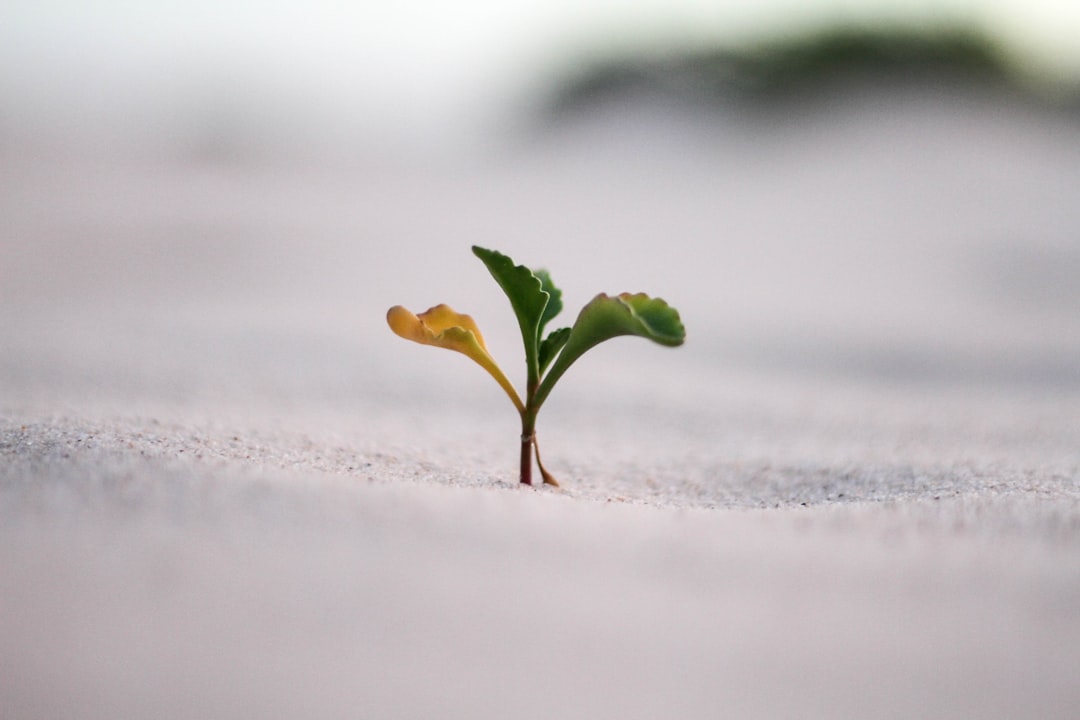At the core of personal growth lies the willingness to embrace change and shift your mindset in new and empowering ways. While it can be easy to become stuck in old habits, ways of thinking, and limiting beliefs, making the decision to actively pursue a growth-oriented mindset can have a transformative impact on your life.
Cultivating a growth mindset means being open to new experiences, perspectives, and ideas. It means embracing the possibility of change and recognizing that the only constant in life is the opportunity to grow and evolve. By making a deliberate effort to shift your mindset, you can empower yourself to overcome obstacles, break through limitations, and achieve your fullest potential.
But why is a mindset shift so important in the first place? At its core, the answer lies in the power of perception. The way we think about ourselves, our circumstances, and our abilities can shape the reality of our lives. Negative self-talk or limiting beliefs, for example, can hold us back from taking risks, trying new things, or pursuing our passions. Conversely, a growth-oriented mindset can help us to see the world with greater clarity, compassion, and creativity.
Ultimately, making the decision to shift your mindset is about taking an active role in your personal growth and well-being. By approaching life with an open, adaptable, and communicative attitude, you can unlock new potential, overcome challenges, and lead a more fulfilling and vibrant life. So, let’s dive into the power of mindset shifts and explore how you can cultivate the habits and practices that can lead to real, sustainable growth.
The Power of Positive Self-Talk: How changing the way you talk to yourself can change your life
When was the last time you paid attention to the way you talk to yourself? Do you have a habit of beating yourself up for your mistakes or dwelling on your shortcomings? It’s time to shift gears and start practicing positive self-talk.
The way you talk to yourself can have a profound impact on your mental health, self-esteem, and overall well-being. When you embrace a positive mindset and talk to yourself with kindness, compassion, and encouragement, you can change the way you perceive yourself and approach life’s challenges.
Positive self-talk is not about ignoring your problems or putting on rose-colored glasses. It’s about acknowledging your setbacks and limitations, but reframing them from a growth mindset perspective. Instead of saying “I can’t do this” or “this is too hard,” try saying “I can learn from this” or “this is an opportunity for growth.”
This mindset shift may sound simple, but it can be transformative. When you approach challenges with a growth mindset, you are more likely to take risks, learn from your mistakes, and ultimately achieve your goals. You become more resilient and adaptable in the face of adversity.
It’s important to note that positive self-talk is not a one-time fix. It takes practice and persistence to make this shift in thinking. Start by paying attention to your self-talk and making a conscious effort to reframe negative thoughts into positive ones. You can also try gratitude practice, which involves focusing on what you are thankful for in your life. This can shift your mindset to one of abundance and appreciation instead of scarcity and self-doubt.
Positive self-talk is a powerful tool for personal growth and well-being. By changing the way you talk to yourself, you can cultivate a growth mindset, become more resilient, and ultimately achieve your goals. It takes practice and persistence, but the payoff is well worth it. So start practicing positive self-talk today and see how it can change your life.
It’s about acknowledging your setbacks and limitations, but reframing them from a growth mindset perspective.
Embracing Change: Why a Growth Mindset Means Being Open to New Experiences and Perspectives
Embracing change can be a difficult concept for many of us. We often find comfort in routines and familiarity, and the thought of disrupting those patterns can make us feel uneasy or even anxious. However, a growth mindset means being open to new experiences and perspectives, even if they challenge our current way of thinking.
When we approach life with a growth mindset, we see change as an opportunity for growth and learning. We understand that our current beliefs and perspectives are not set in stone, and are willing to challenge them in order to gain a deeper understanding of ourselves and the world around us.
It’s important to note that embracing change doesn’t mean completely abandoning our values or beliefs. Rather, it means being willing to adapt and evolve our thinking as we gain new knowledge and insights.
One way to cultivate this openness to new experiences and perspectives is to practice empathy. By putting ourselves in someone else’s shoes and seeing things from their perspective, we can expand our own understanding and develop a more well-rounded worldview.
Another key component of embracing change is taking action. It’s not enough to simply acknowledge the need for change – we must actively seek out new experiences and opportunities for growth. This can be as simple as trying a new hobby or signing up for a class on a topic we know little about.
In summary, embracing change is essential to developing a growth mindset. By being open to new experiences and perspectives, we can gain a deeper understanding of ourselves and the world around us, and continue to grow and evolve throughout our lives.
Rather, it means being willing to adapt and evolve our thinking as we gain new knowledge and insights.
Overcoming Limiting Beliefs: Identifying and Challenging the Beliefs That Are Holding You Back
Many of us hold beliefs that limit our potential and keep us from achieving our goals. These limiting beliefs are often formed during childhood and can be reinforced by negative experiences throughout our lives. However, it’s possible to identify and challenge these beliefs in order to create a more positive and empowering mindset.
The first step in overcoming limiting beliefs is to identify them. It’s important to be honest with ourselves and recognize the thoughts that are holding us back. Common limiting beliefs include:
- “I’m not good enough”
- “I’m too old/young”
- “I don’t have enough experience”
- “I will never be successful”
Once we’ve identified our limiting beliefs, it’s time to challenge them. We should ask ourselves where these beliefs came from and whether or not they’re actually true. Often, our limiting beliefs are based on assumptions or past experiences that no longer apply to our current situation.
One effective technique for challenging limiting beliefs is to reframe them in a more positive light. For example, instead of “I’m not good enough,” we can say “I am capable of learning and improving.” By reframing our limiting beliefs, we can create a more positive and empowering mindset that allows us to reach our full potential.
It’s important to note that overcoming limiting beliefs is an ongoing process. We may have to challenge these beliefs multiple times in order to fully overcome them. However, with persistence and a willingness to grow, we can create a mindset that is open to new experiences and possibilities.
By overcoming our limiting beliefs, we can create a more positive and empowering mindset that allows us to achieve our goals and live a more fulfilling life.
It’s important to be honest with ourselves and recognize the thoughts that are holding us back.
Taking Responsibility for Your Life
Have you ever found yourself feeling like a victim in your own life? Maybe you blame others for your setbacks or feel like you have no control over your circumstances. These are signs of a victim mentality, and it can be incredibly limiting.
But what if you could shift your mindset from victim to self-empowerment? What if you could take responsibility for your life and make proactive choices that lead to growth and success?
This is where the power of mindset comes into play. When you accept responsibility for your life, you become the driver of your own destiny. It’s a shift from being reactive to being proactive, and it can make all the difference in your personal growth and development.
So how do you make this mindset shift? It starts with a change in perspective. Instead of blaming others or external circumstances, start taking ownership of your choices and actions. Recognize that you have the power to choose how you respond to any given situation.
Even when things don’t go according to plan, you can still take responsibility for your response. You can choose to learn from the experience and use it as an opportunity for growth.
Another way to take responsibility for your life is to set goals and pursue them with purpose. This requires a proactive mindset and a willingness to take risks and embrace the unknown. But when you do, you may surprise yourself with what you are capable of achieving.
Ultimately, taking responsibility for your life leads to self-empowerment. You have the power to make choices that shape your future and define your success. And when you take ownership of your life, you may find that anything is possible.
These are signs of a victim mentality, and it can be incredibly limiting.
Cultivating Gratitude and Appreciation: How Focusing on the Positive Can Shift Your Mindset and Improve Your Well-being
When we focus on the negative aspects of our lives, it’s easy to slip into a mindset that things are not going well for us. It’s essential to recognize and appreciate the positive elements in our lives, no matter how small they may seem.
Cultivating gratitude and appreciation means recognizing the good things in our lives and being grateful for them. It’s the act of recognizing and valuing the positive while acknowledging that there will always be challenges and difficulties we face. The practice of gratitude can be life-changing and can shift our mindset from one of lack to one of abundance.
The benefits of focusing on what we’re grateful for extend far beyond just feeling better about our lives. Research has shown that gratitude can improve our well-being, reduce stress, and lead to positive changes in our physical and mental health.
One way to cultivate gratitude is to keep a daily gratitude journal. Write down a few things that you’re grateful for each day, no matter how small. It could be something as simple as being able to enjoy a cup of coffee or having a supportive friend or family member.
Another way to practice gratitude is to express appreciation to others. Take a moment to thank those who have helped you or shown kindness to you. Appreciating others can help shift our focus from what we lack to what we have, and it can create a positive ripple effect in our relationships and communities.
It’s important to note that cultivating gratitude and appreciation does not mean we ignore or minimize the difficult things in our lives. It means we acknowledge that there are challenges but choose to focus on the positives in our lives. It’s a mindset shift that can transform our outlook and lead to a greater sense of fulfillment.
Cultivating gratitude and appreciation is a powerful way to shift our mindset and improve our well-being. By focusing on the positive elements in our lives, we can create a sense of abundance and lead a more fulfilling life. So, take a moment to appreciate the good things in your life, express gratitude to others, and embrace a mindset of abundance.
Cultivating gratitude and appreciation means recognizing the good things in our lives and being grateful for them.
Conclusion: The Importance of Continual Mindset Growth and how it can lead to a more fulfilling life
Congratulations! You’ve made it to the end of this article on mindset shifts and personal growth. By now, you’ve learned about the power of positive self-talk, the benefits of embracing change, how to overcome limiting beliefs, taking responsibility for your life, and cultivating gratitude and appreciation.
But it’s important to note that personal growth isn’t a one-time event. It’s an ongoing process that requires continual mindset growth. Just like a muscle that requires regular exercise to stay healthy, your mindset must also be continuously challenged and stretched in order to see real progress.
One of the biggest misconceptions about personal growth is that once you’ve achieved success, you can take your foot off the gas and coast. However, personal development is not a one-and-done event but rather a continuous journey that requires constant attention and care.
Just like any other skill or habit you develop, staying committed to a growth mindset takes time, effort, and discipline. But the rewards are worth it. By embracing a growth mindset, you will find yourself more adaptable to change, more confident in taking on new challenges, and more resilient in the face of adversity.
And as your perspective shifts and you begin to see the world with fresh eyes, you’ll find that your relationships improve, your career progresses, and your overall sense of fulfillment and purpose in life deepens.
So, keep challenging yourself to grow, embracing new experiences, and cultivating gratitude and appreciation along the way. Remember, personal growth isn’t a destination, it’s a journey – and the possibilities are endless!





